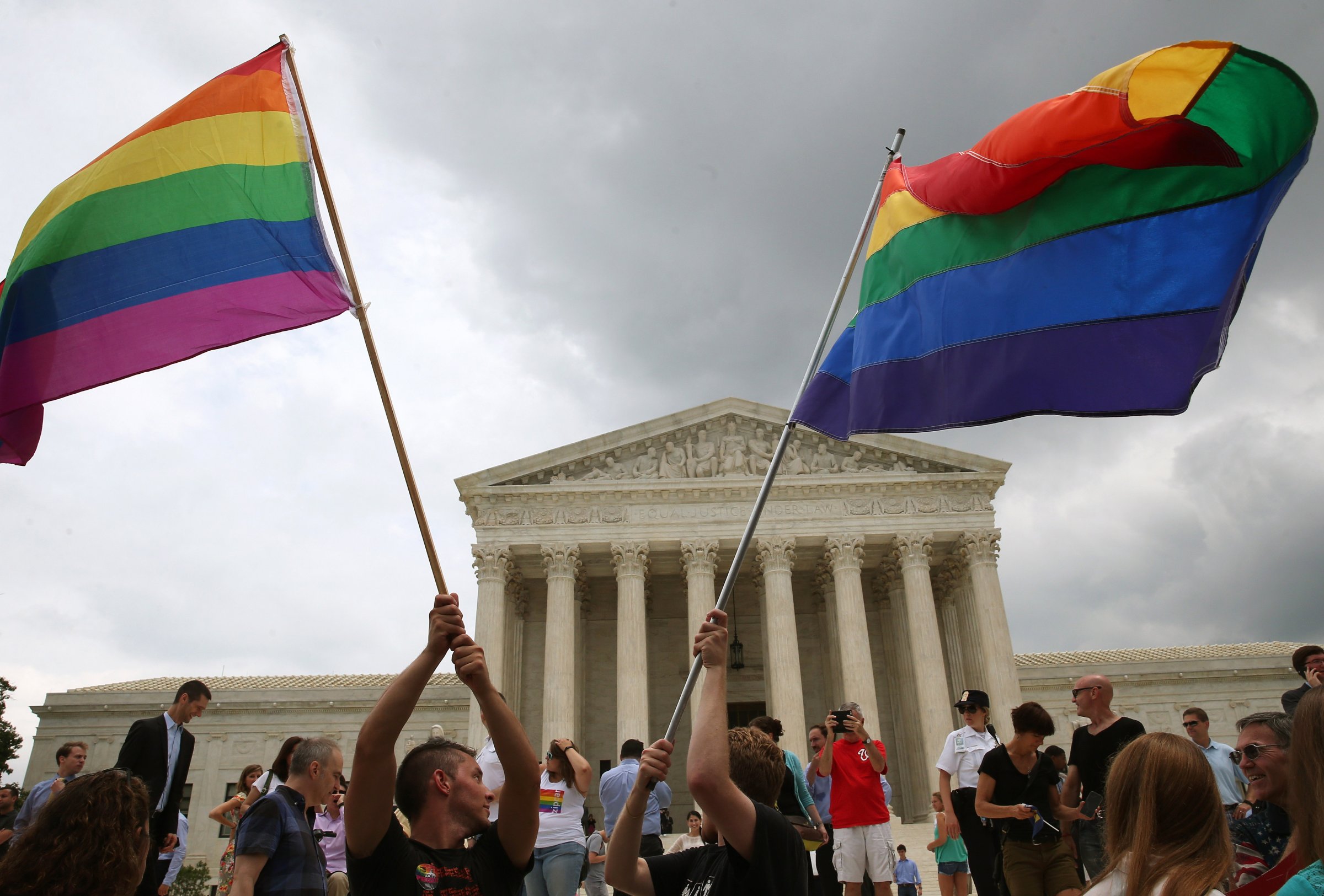
Growing up poor in rural Kentucky, the gay son of tobacco sharecroppers, I never dreamt I would see what we saw today from the Supreme Court. In those days, love between two men or two women was spoken of only in whispers, if at all. Today, the right to marry the one we love was shouted from the rooftops by the highest court in the land.
I received news of the Supreme Court’s marriage-equality decision while in Salt Lake City, this year’s site of the every-three-years General Convention of the Episcopal Church. Religion has been at the center of the debate about marriage equality, even though it was always civil, not religious, marriage that the LGBT community has sought through our civic institutions and secular courts.
The Episcopal Church has been more welcoming of LGBT people than many denominations and has long been on record as supporting civil marriage for couples of the same gender. But our theology and thinking about the religious sacrament of marriage has been less supportive. Full and equal access to the church’s sacrament of marriage for same-gender couples is high on our 2015 convention agenda, with changes proposed in our canons which would not only permit those marriages, but also offer a number of liturgical possibilities for blessing and celebrating holy matrimony. It’s an exciting time to be an American and an Episcopalian.
See Some of the First Gay Marriages in These States
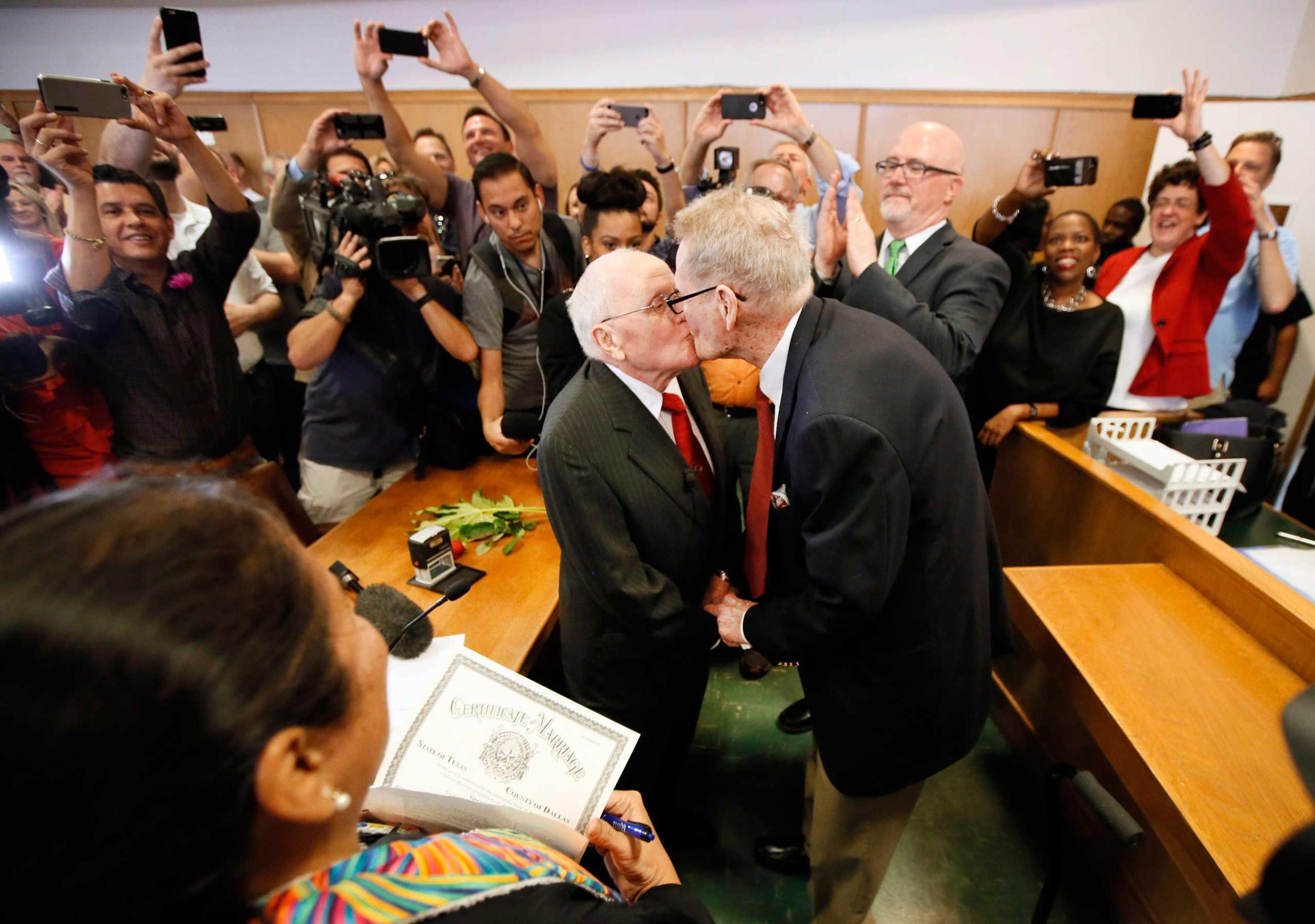
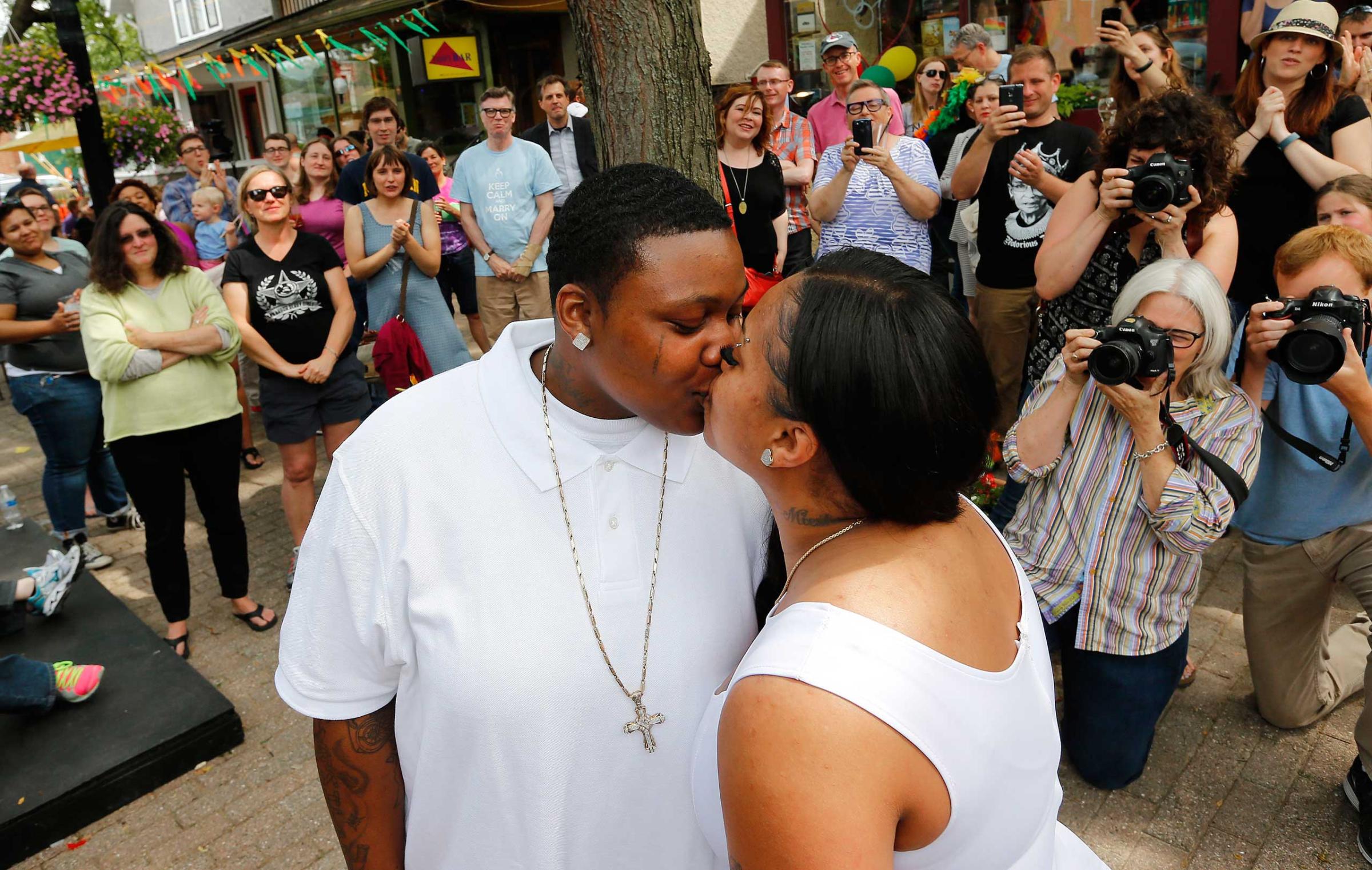
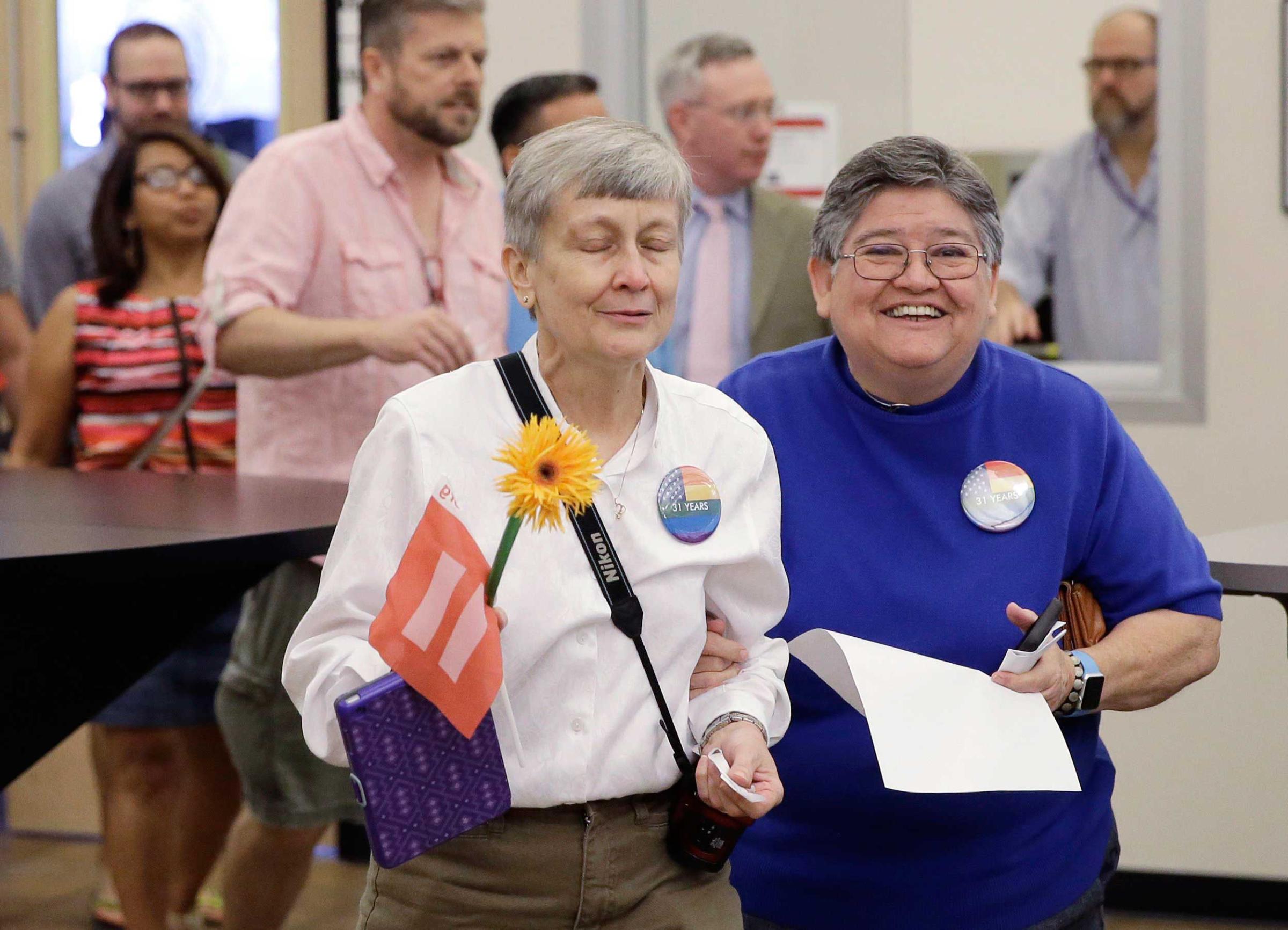
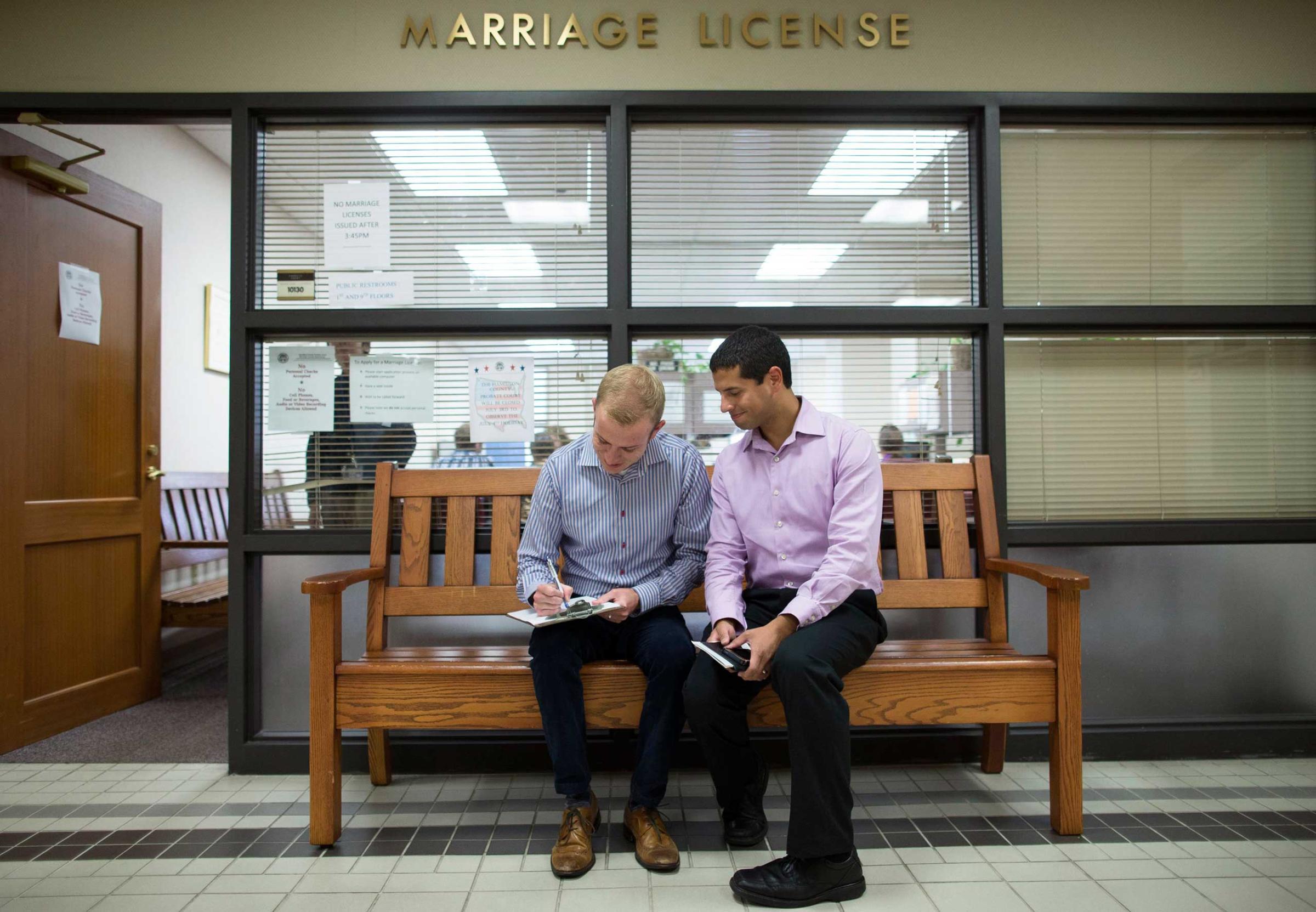
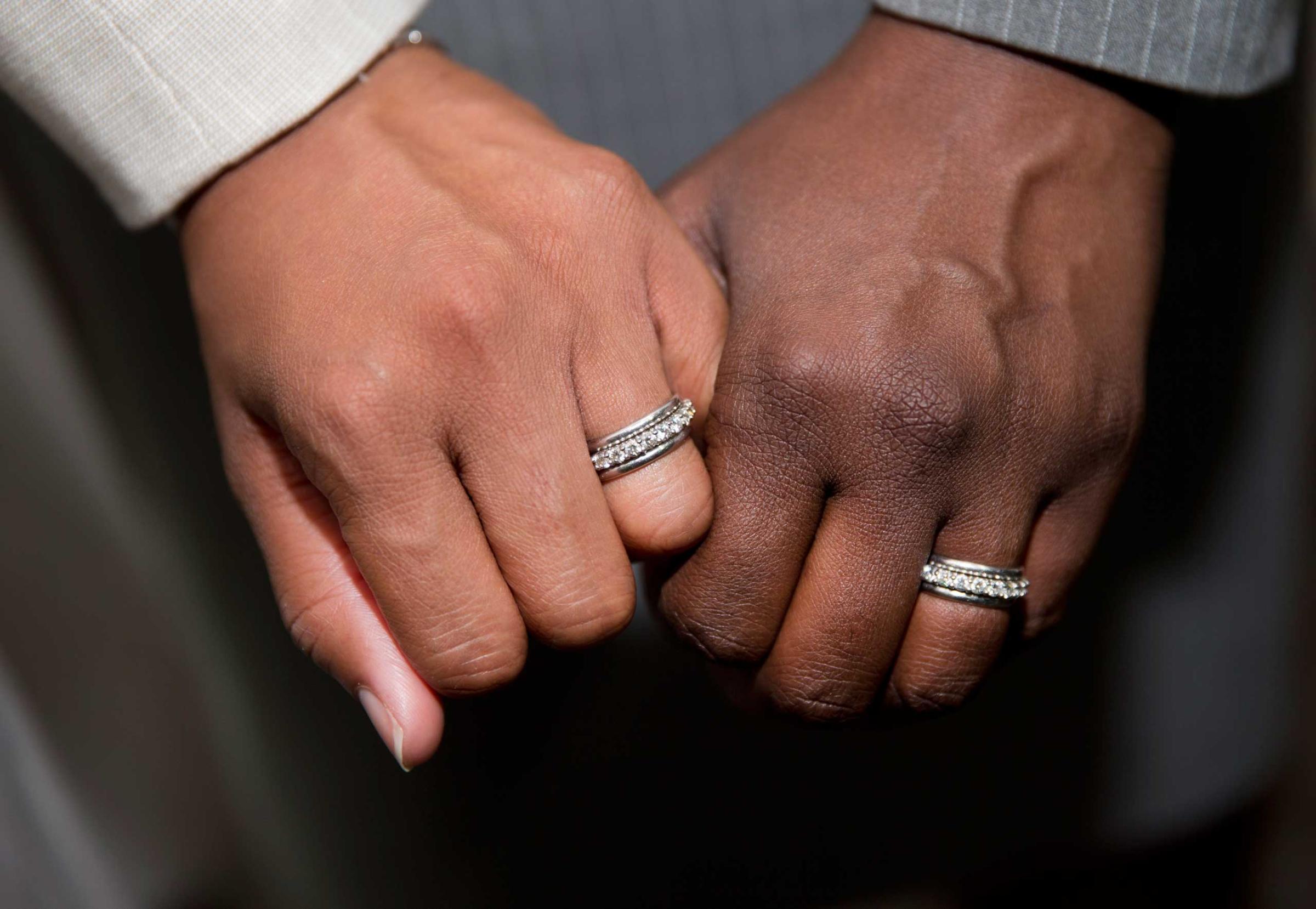
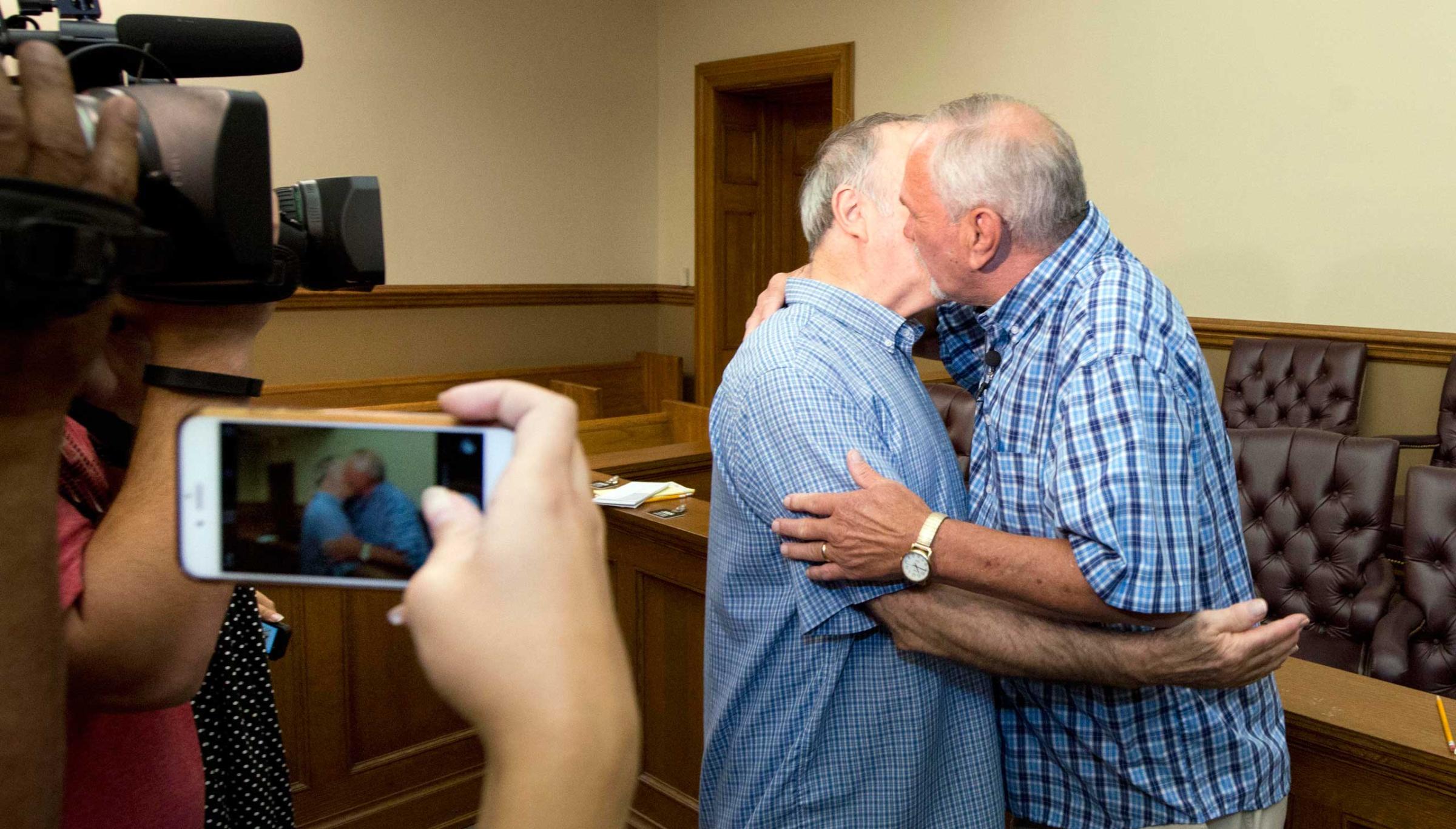
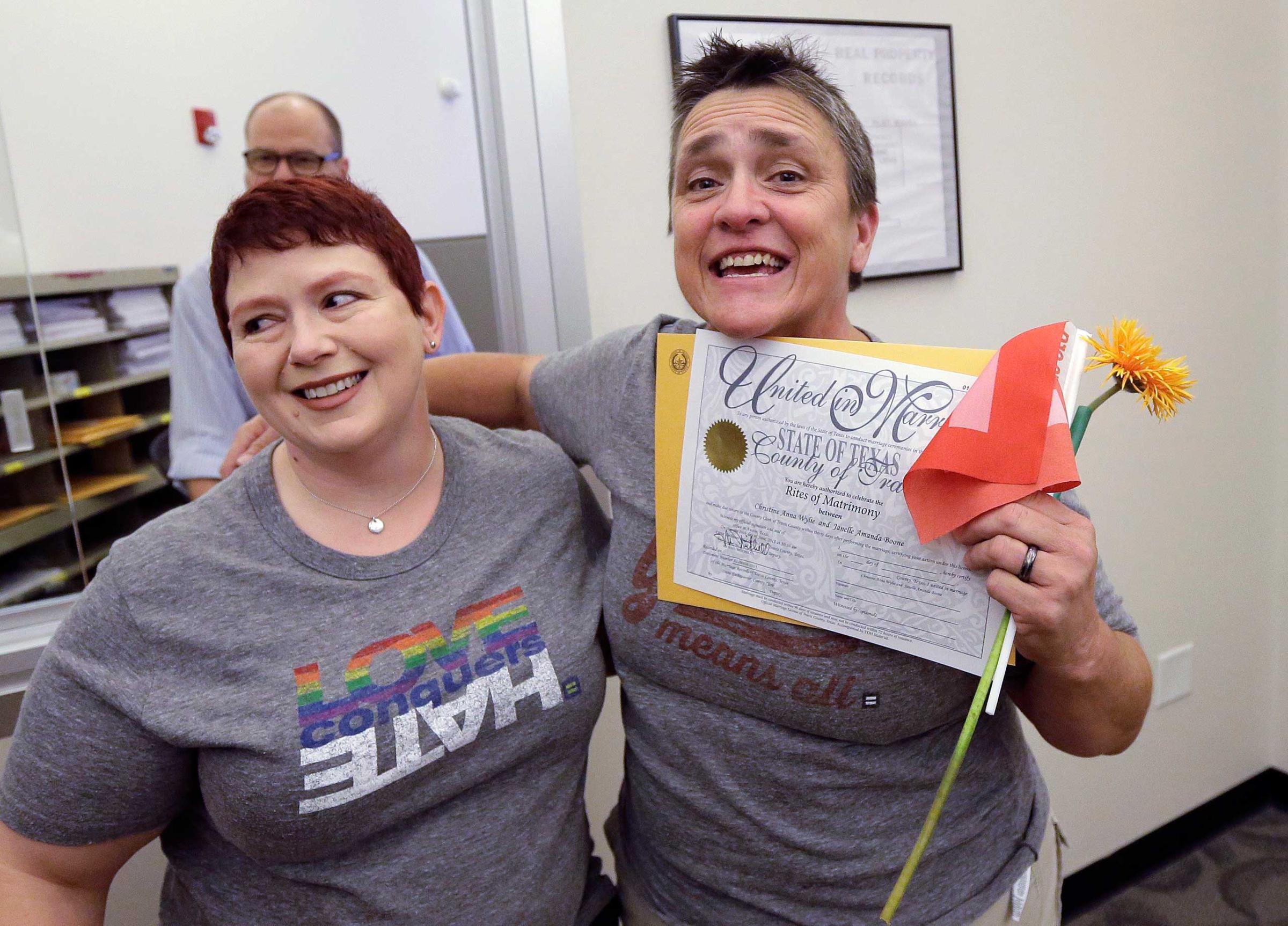
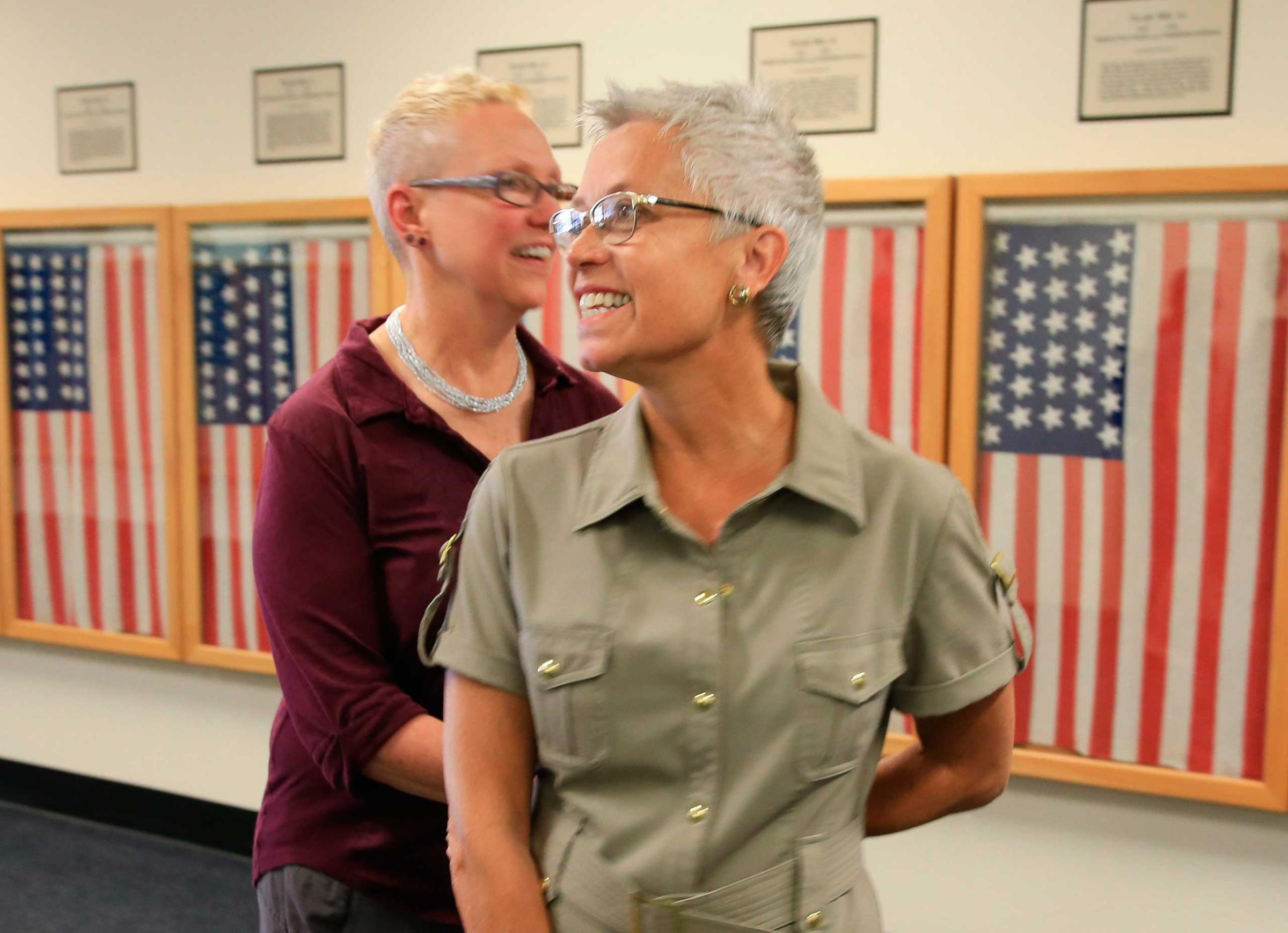
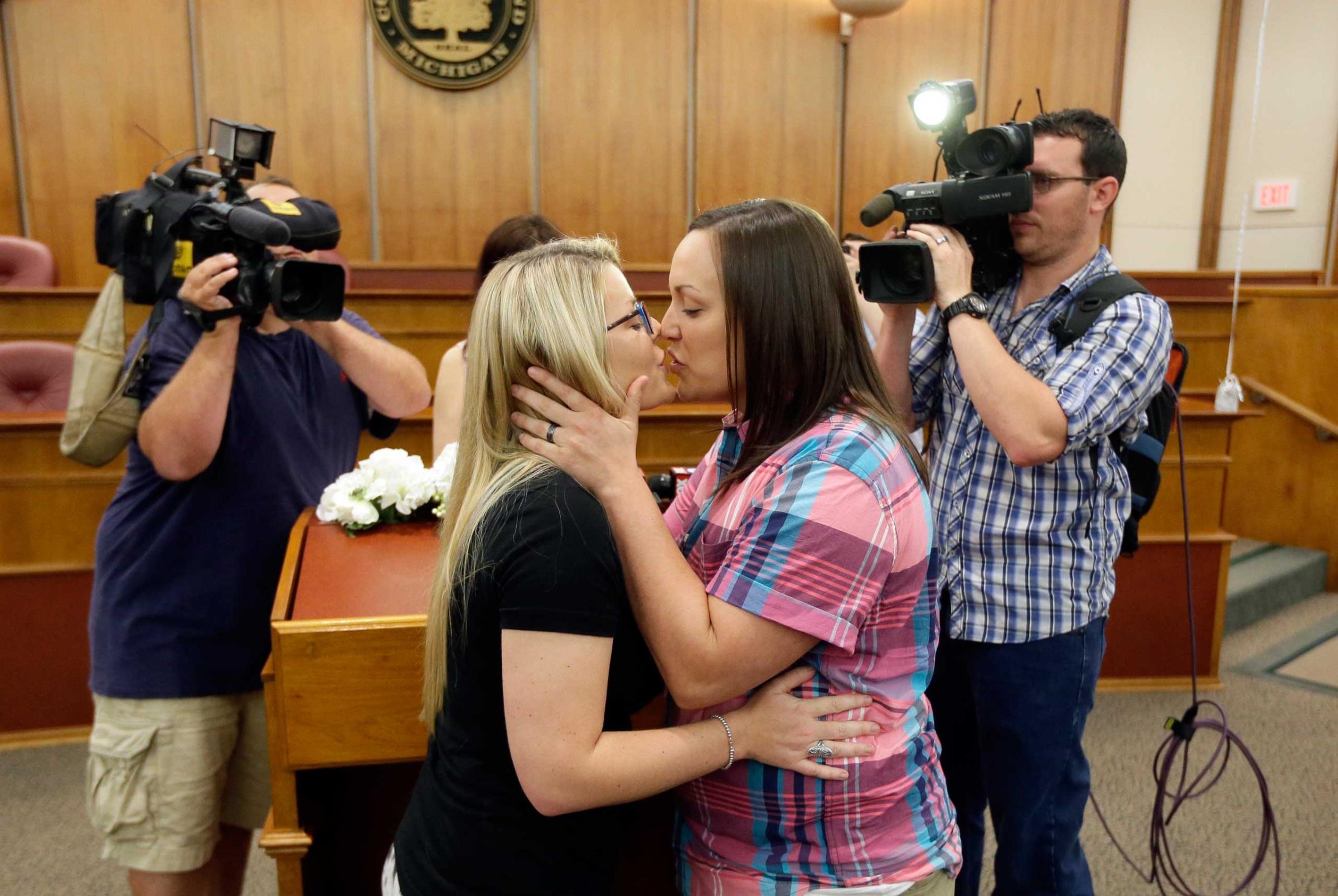
As a person of faith, I believe in a God who is always and everywhere working for justice. If God can’t find partners in that work inside the church, synagogue, and mosque, God will go outside religious institutions for allies in that justice work. Now that the Supreme Court has ruled in favor of marriage equality, religious people must discern whether or not God is working for justice for LGBT people, with or without the church, and whether or not to join God in that effort.
This discernment is important because much work remains in the fight for equality for our gay, lesbian, bisexual, and transgender friends, family members and fellow citizens. Our country is still a patchwork quilt of rights for this segment of our American community. Yes, as of today, marriage equality is the law of the land, but in many states, someone who is married on Sunday can still be fired on Monday for being gay—with absolutely no recourse in the courts. That newly married gay couple can legally be denied lodging on their honeymoon or housing upon their return home. If you had told me 10 years ago that we would have national marriage equality before job protections for LGBT people, I would have told you that you were crazy! But that is the craziness we must live with for a little while longer, until we get this completely right.
The biggest question I have in the face of this stunning and wonderful development is this: Has the LGBT community learned, out of our own experience of oppression, the importance of working to end all oppression? Will we work for “justice for all,” or will we be content with justice for “just us?” Will we use our knowledge of what it’s like to be treated as second-class citizens to understand and ally ourselves with those who are gunned down because of the color of their skin? Will our now legally sanctioned families come to the aid of those immigrant families torn apart by deportation? Will we use our experience to work for those who live their lives in a wheelchair, or in poverty, or in the body of the gender not meant to be theirs?
Justice Anthony Kennedy wrote in his majority opinion, “In forming a marital union, two people become something greater than once they were.” It is my hope that today’s Supreme Court ruling inspires the LGBT community to become something greater than we once were and work for the greater good of all who are oppressed.
The God of the Abrahamic faiths—Judaism, Christianity, and Islam—is believed to always be working on behalf of those who are marginalized, oppressed, and discriminated against. In violation of my own rule to never claim to know, for sure, the mind of God, I will venture to guess that it is as good a day for God as it is for God’s gay, lesbian, bisexual and transgender children. And there even better days ahead, when the justice we taste today increases in our lives and in the lives of all of God’s children.
More Must-Reads from TIME
- Donald Trump Is TIME's 2024 Person of the Year
- Why We Chose Trump as Person of the Year
- Is Intermittent Fasting Good or Bad for You?
- The 100 Must-Read Books of 2024
- The 20 Best Christmas TV Episodes
- Column: If Optimism Feels Ridiculous Now, Try Hope
- The Future of Climate Action Is Trade Policy
- Merle Bombardieri Is Helping People Make the Baby Decision
Contact us at letters@time.com